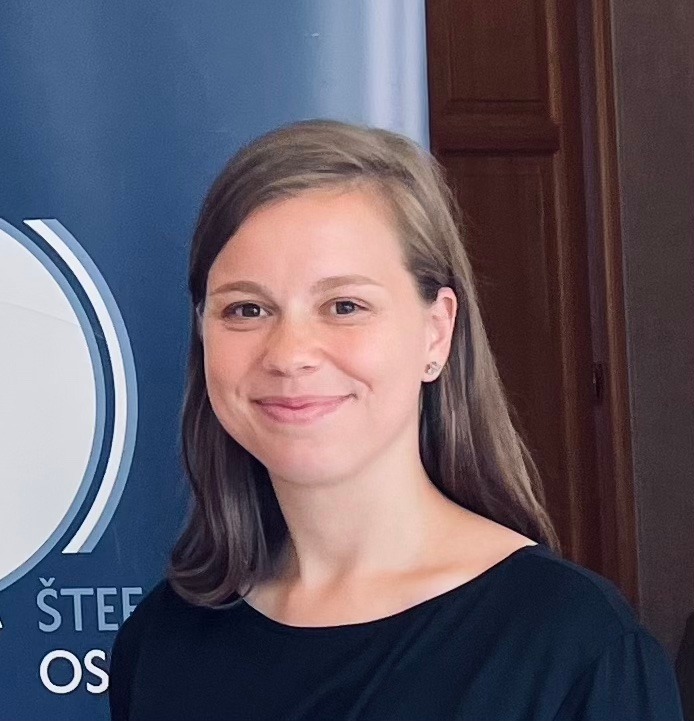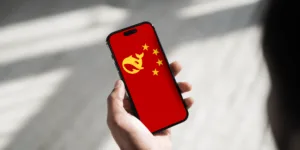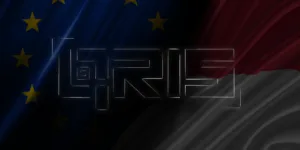In this issue, we dissect the following topics:
-
South Korea’s shifting approach towards Ukraine
-
China and Slovakia grow closer
-
Nascent diversion in Lithuania’s China policy
-
The new European Commission
If you like what you see, please forward this message to your friends and colleagues who can subscribe here.
Do you need to know more about East Asia? Don’t hesitate to shoot us a message about custom analysis tailored to your needs.
1. South Korea’s shifting approach towards Ukraine
What’s going on? In response to North Korea’s plans to send 10,000 troops to fight alongside Russian forces in Ukraine, and their first reported firefights with the Ukrainian army, South Korea said it is “not ruling out the possibility of providing weapons” to Ukraine. The weapons could help Ukraine defend itself against Russia’s military aggression, according to South Korean President Yoon Suk Yeol. This would constitute a significant change in South Korea’s long-established policy of not supplying weapons to countries in conflicts and could escalate regional tensions in East Asia.
Going deeper… Amid North Korea’s growing military cooperation with Russia, South Korea is strengthening defense and security ties with European countries. The EU High Representative for Foreign Affairs Josep Borrell recently visited Seoul, where he and South Korea’s Minister of Foreign Affairs Cho Tae-yul signed the ROK-EU Security and Defence Partnership during the first EU-South Korea strategic dialogue. The partnership will enhance cooperation between Brussels and Seoul in maritime security and space defense, cybersecurity, counterterrorism, or disarmament.
This means… South Korea has not directly provided any weapons to Ukraine so far, only to NATO member states. It has, however, pledged $394 million in humanitarian and reconstruction aid. According to President Yoon, Seoul will now “monitor unfolding developments related to the operations of North Korean soldiers” and adjust support for Kyiv accordingly. This relates to the fact that South Korea is worried that Kim Jong Un’s regime might get access to Russian nuclear technology to upgrade its nuclear weapons program. This could give Kim Jong Un confidence, leading to more aggressive provocations on the Korean Peninsula, especially if South Korea sent weapons to Ukraine, which could provoke him.
Thank you for being a part of our community! We are committed to delivering content that resonates with you, and your feedback is crucial to that mission. To help us enhance our newsletter, we invite you to participate in a brief survey. Your insights will guide us in tailoring our content to better serve your needs.
2. China-Slovakia relations following PM’s visit
What’s going on? Ties between Slovakia and China are strengthening. During Prime Minister Robert Fico’s visit to China, both countries elevated their bilateral relations by signing a Strategic Partnership and 13 Memoranda of Understanding (MoUs) across various sectors, including the economy, transportation, tourism, and culture. The developments, however, highlight Slovakia’s growing vulnerability to Chinese influence and sparked criticism due to a lack of transparency.
Going deeper… A notable development during the visit was the agreement with Gotion, a Chinese company, to build a €1.4 billion electric battery factory in Šurany. Prime Minister Fico emphasized that this investment is one of the largest in Slovakia’s history, bringing 1,300 new jobs, and collaboration with major car manufacturers, notably Volkswagen, which has taken a direct ownership stake in Gotion. Additionally, discussions covered several infrastructure projects, including the Karpaty Tunnel, a direct Bratislava-Beijing flight connection, and the creation of a new port in Bratislava. PM Fico stated, these initiatives are designed to position Slovakia as a logistics hub for Chinese-European trade, particularly in light of post-war reconstruction efforts in Ukraine.
Furthermore, the Slovak government approved a series of measures to further strengthen economic cooperation with China. These include a focus on sustainable development, cultural exchange, and infrastructural projects. Key directives involve the establishment of a working group on investments and economic cooperation with China, with an emphasis on industrial transformation and green energy initiatives. Both countries are also working to expand their cultural, educational, and tourism cooperation. Notable plans include the opening of a Slovak Institute in Beijing, the development of direct transport links, and the implementation of a visa-free policy for Slovak citizens visiting China, aimed at boosting travel, trade, and cultural exchange.
At the same time, Slovakia reiterated its strong commitment to the One-China policy and expressed firm opposition to any actions that interfere with China’s internal affairs, sovereignty, or territorial integrity, including issues related to Taiwan. A joint statement by Beijing and Bratislava also opposed the politicization of human rights issues, affirming that no country should interfere in the internal affairs of another under the pretext of democracy and human rights.
Undoubtedly, the visit has raised concerns about the potential risks associated with the Strategic Partnership. One example is an agreement between the Slovak state press agency TASR and China Media Group, which involves collaboration and content-sharing. Critics worry that this partnership could expose a significant portion of Slovakia’s media landscape to Chinese propaganda or disinformation, particularly regarding coverage related to China or its core interests. Despite these concerns, Prime Minister Fico asserted that Slovakia’s security and economy have not been compromised by the trip, reflecting the government’s willingness to pursue closer relations with Beijing, often without critical scrutiny.
3. Growing diversion in Lithuania’s China policy
What’s going on? The Lithuanian parliament recently passed a law blocking Chinese access to critical renewable energy sectors, specifically solar and wind farm systems, as well as batteries larger than 100 kW. Lithuania has emerged as one of Beijing’s most outspoken critics in Europe, pursuing closer relations with Taiwan. However, the decision to block access comes amid a changing political landscape.
Currently, Lithuania possesses more than 1 000 solar and wind farms with a capacity larger than 100 kW, some of which use Chinese-manufactured control systems with remote operation capabilities. In practice, this means that from May 2025, operators of these solar and wind farms will have to implement additional measures to ensure cybersecurity. The decision aligns with Lithuania’s National Security Strategy, identifies China as a threat and aims to mitigate risks to the electricity system’s operation that could be compromised by the remote use of equipment produced by foreign powers. Relations between China and Lithuania have worsened since 2021 when Beijing imposed a trade embargo on Lithuania, expelled Lithuania’s ambassador, and recalled its own envoy from the country.
Nevertheless, with a new government coming into power, there are growing calls for potential foreign policy changes regarding China. Gintautas Paluckas, the Social Democratic Party’s candidate for Prime Minister, has expressed his intent to “normalize” relations with China following his party’s electoral victory. Paluckas has criticized the former government for allowing the opening of a “Taiwanese Representative Office” in 2021, describing the move as a “grave diplomatic mistake.” His intention to improve relations with China has also been supported by the Lithuanian President.
Meanwhile, Taiwanese Foreign Minister Lin Chia-Lung recently also visited Lithuania, reaffirming Taiwan’s commitment to cooperating with Lithuania on semiconductor development. This visit comes despite the announcement that Lithuania’s tech company, Teltonika, is halting construction of its High-Tech Hill Park in Vilnius. The Ministry confirmed that Teltonika has ceased work on the industrial park, which was expected to host several investment projects, including collaborations between Taipei and Vilnius. A contract between the Lithuanian Economy Ministry and the Teltonika Group, signed in December 2022, aimed to produce semiconductors using Taiwanese technology.
This means… Lithuania’s decision to block Chinese access to critical renewable energy sectors underscores its growing national security concerns. While the incoming government under Gintautas Paluckas may seek to normalize relations with China, Vilnius is likely to continue balancing its security priorities with diplomatic efforts.
4. The new European Commission
What’s going on? On November 27, the European Parliament approved the new European Commission, marking a pivotal moment for shaping EU policy toward China. During the hearings, all commissioners showed a strong knowledge on the topic of China as a geopolitical and economic rival, though their approaches towards the issue vary based on their portfolios and individual perspectives.
Going deeper… commissioner by commissioner… The Czech nominee for Commissioner for International Partnerships, Jozef Síkela, won’t have an easy journey to ‘’rebrand’’ EU’s Global Gateway initiative to counterweight China’s Belt and Road Initiative (BRI). With the significant €300 billion budget, Síkela wants to pursue a pragmatic approach—balancing profit with principles such as human rights and green policy to make the EU’s offer competitive against China’s infrastructure projects globally.
Maroš Šefčovič, the new Commissioner for Trade and Economic Security, gains one of the Commission’s most influential portfolios. Despite being nominated by Slovakia’s China-friendly Prime Minister Robert Fico, Šefčovič labeled China as the EU’s “most challenging trading partner”. This view is closer to the commission’s de-risking strategy on China than his nominee Slovak PM Fico, who recently gave an interview to Russian regime’s propaganda channel Rossiya 1. Both Síkela and Šefčovič emphasize reducing EU reliance on China for essential materials, such as cobalt and rare earths while improving the appeal of EU-led initiatives like the Global Gateway.
As the High Representative for Foreign Policy, Kaja Kallas emerged as one of the most outspoken critics of China in the new commission. She moves beyond the “partner-competitor-rival” framework of her predecessor, describing China predominantly as a “systemic rival”. A strong supporter of Ukraine, she sees a strategic linkage between Russia and China: both exploit Europe’s openness and “seek to weaponize interdependencies”. Kallas also supports aligning geopolitics with geoeconomics, advocating for using trade instruments and leveraging hybrid sanctions for stronger European defenses against “malign external influence’’.
Valdis Dombrovskis, Latvian candidate for the Economy and Productivity, Implementation and Simplification Portfolio, is seeking reappointment for his third term as EU commissioner. His tough stance on China and his ability to negotiate on behalf of the EU with major global players make him a crucial figure for Europe’s economic future. Together with Šefčovič, both highlight the urgent need to strengthen EU trade defense mechanisms to address economic pressures in EU-China relations. Both advocated for a framework of free and fair trade, firmly opposing China’s weaponization of trade through tactics such as economic coercion and unilateral restrictions, such as recent limits on rare earth exports.
Moreover… All newly appointed European Commissioners prioritize transatlantic cooperation and signal a unified EU commitment to protecting its economic interests in the face of Beijing’s influence. Šefčovič also carefully navigated the EU-Taiwan relation question, advocating for enhanced cooperation in research and trade while avoiding actions that could provoke Beijing. He also revealed plans for early visits to Washington and Beijing, reflecting the importance of diplomatic engagement. Some commissioners highlighted the need to engage other like-minded partners: Šefčovič drawing inspiration from Japan in terms of access to raw materials while Jozef Síkela stressed stronger G7 coordination, particularly to push China on debt relief for Africa.
Quick takes on CEEasia developments
TAIWAN | Taiwan’s Foreign Minister Lin Chia-lung led a delegation of representatives of 20 drone companies for a week-long visit to Lithuania, Poland, and Brussels. During their visit they met with government officials and business representatives to discuss advancing joint cooperation in drone manufacturing.
TAIWAN | The EU and Taiwan have resolved a WTO dispute over offshore wind auctions on November 8. Taiwan has committed to greater flexibility in project implementation and pledged to remove localization requirements in future allocation rounds, ensuring fair competition for European developers.
JAPAN | Japan and EU sealed a Security and Defence Partnership amid North Korea’s growing military alignment with Russia and regional tensions with China. This includes exchange of information, joint naval exercises, and cooperation in maritime security, cybersecurity, and hybrid threats. The EU announced the same kind of partnership also with South Korea.
CAMBODIA | The Deputy Prime Minister of Cambodia, Sun Chanthol, accompanied by a delegation from the Council for the Development of Cambodia (CDC) and businessmen, visited Czechia on November 7–8. High-level meetings and business matchmaking were part of the CDC–EU Roadshow, aimed at attracting European investors and strengthening economic cooperation.
PHILIPPINES | Bartek Wasiewski, head of the Poland Foreign Trade Office in Manila, recently visited Baguio in the Cordillera region of the Philippines. The purpose of his visit was to discuss Poland’s plans to collaborate with local mining companies in processing metal ores critical for the semiconductor industry as well as Warsaw’s ongoing investment in establishing data centers in the Bicol region.
INDIA | India and the European Union representatives met at the end of November to hold the 10th round of the ongoing India-EU Free Trade Agreement (FTA) negotiations.











